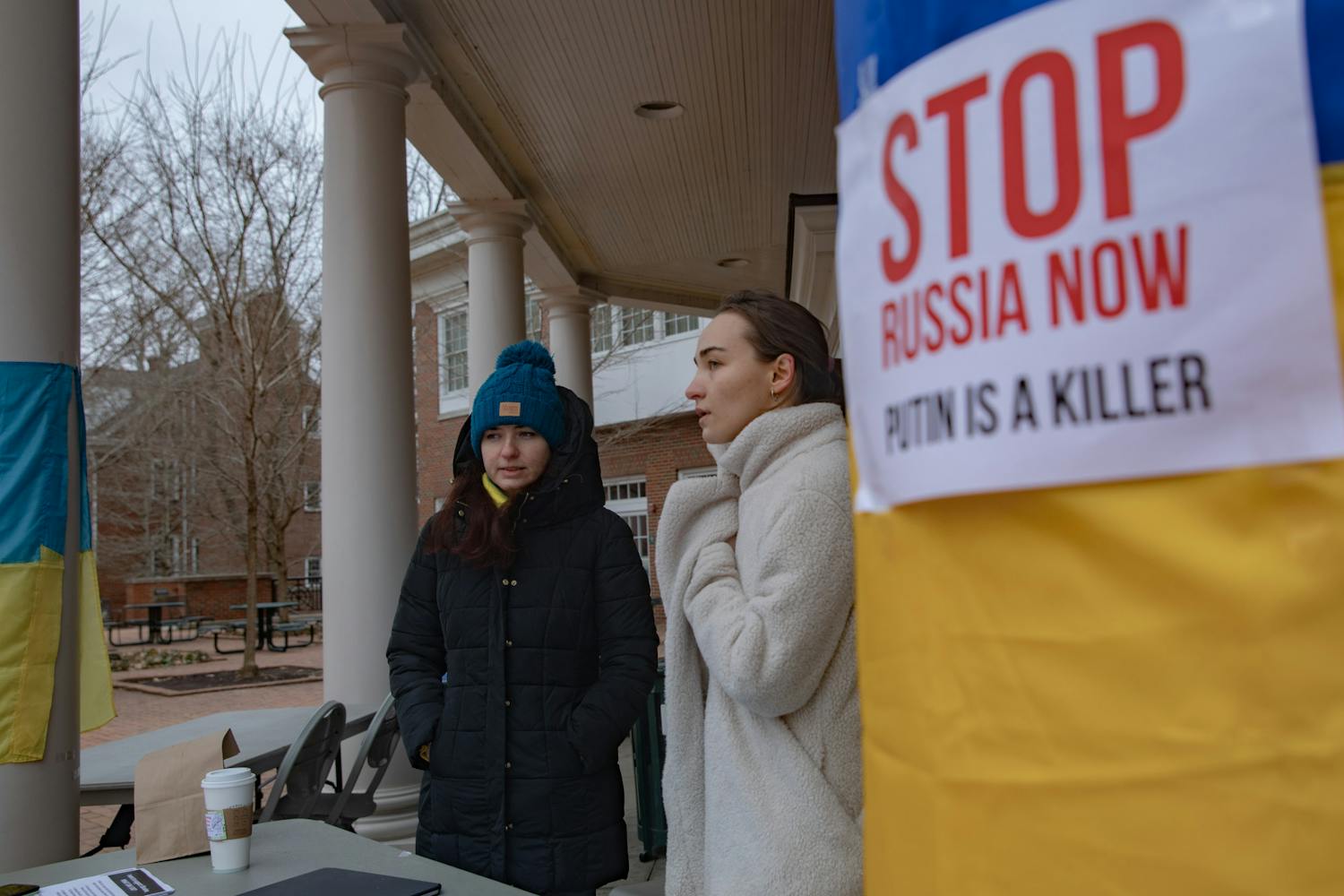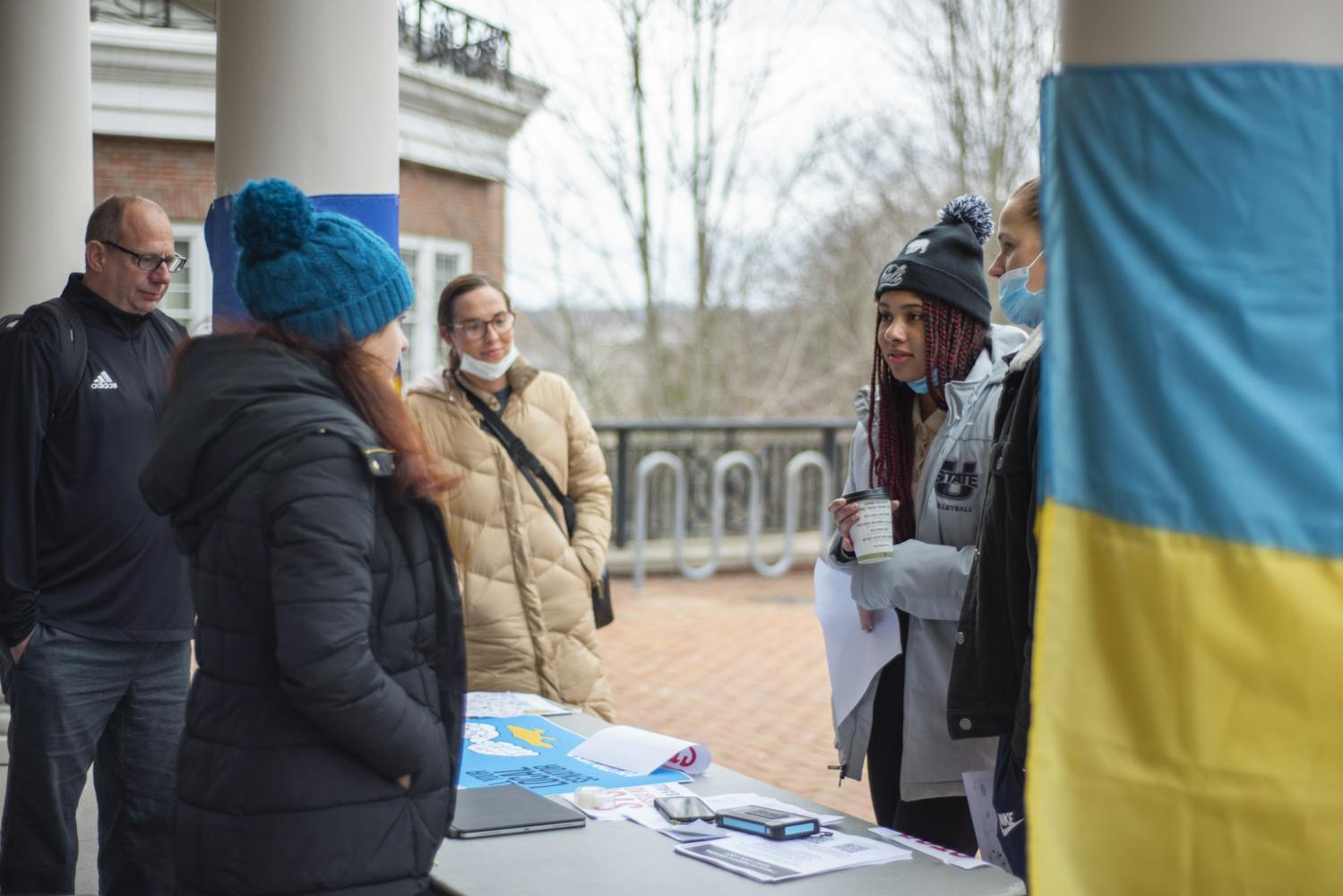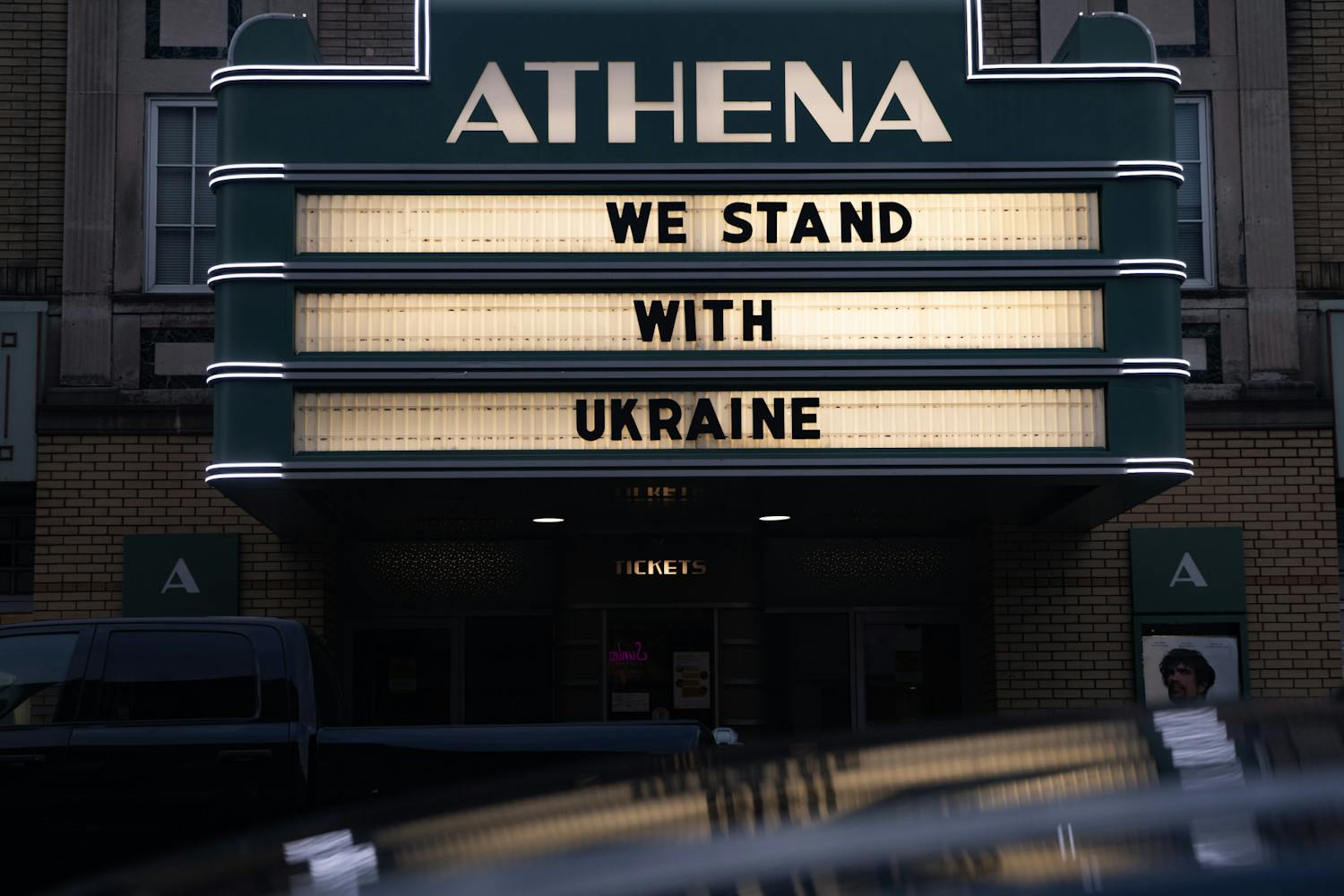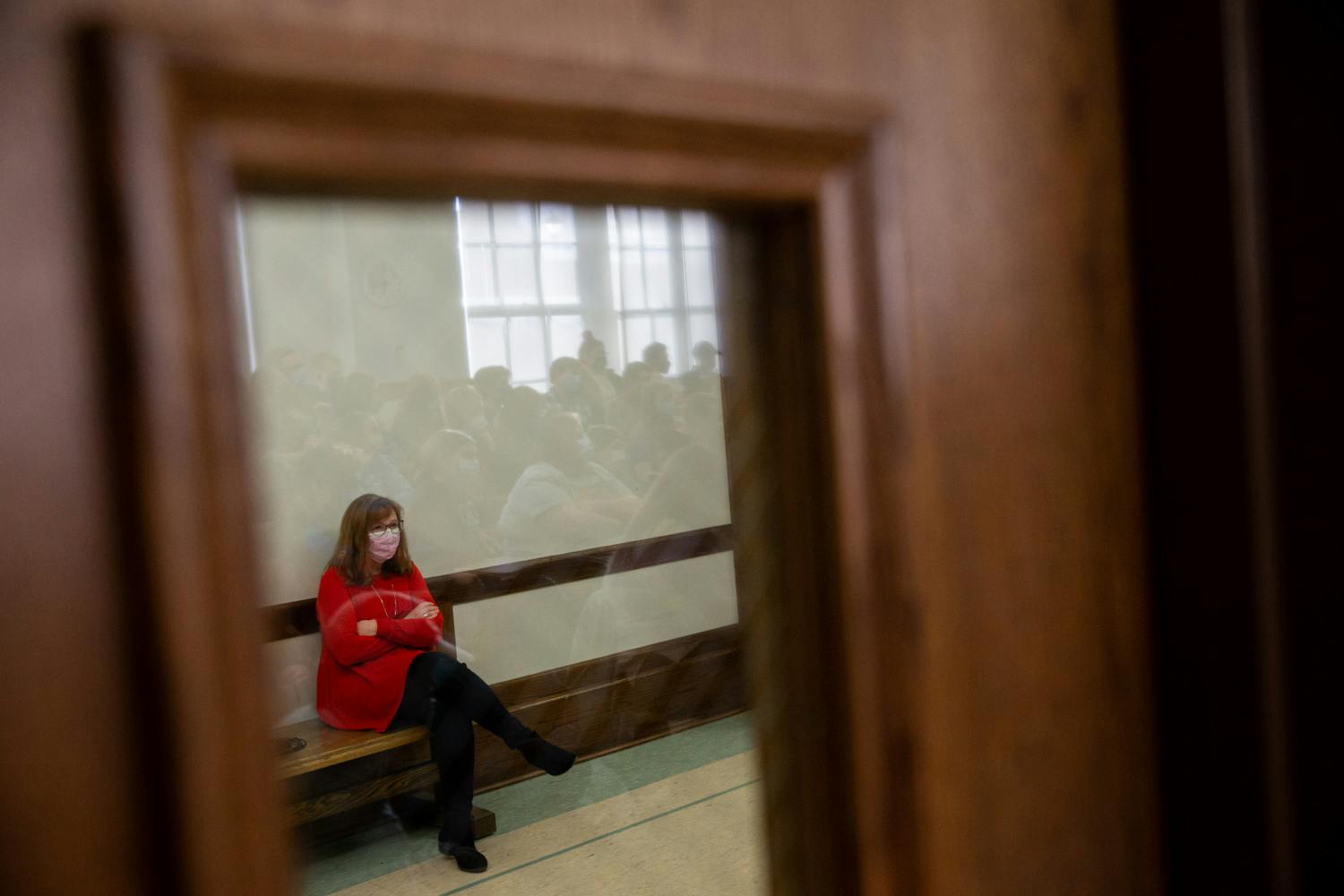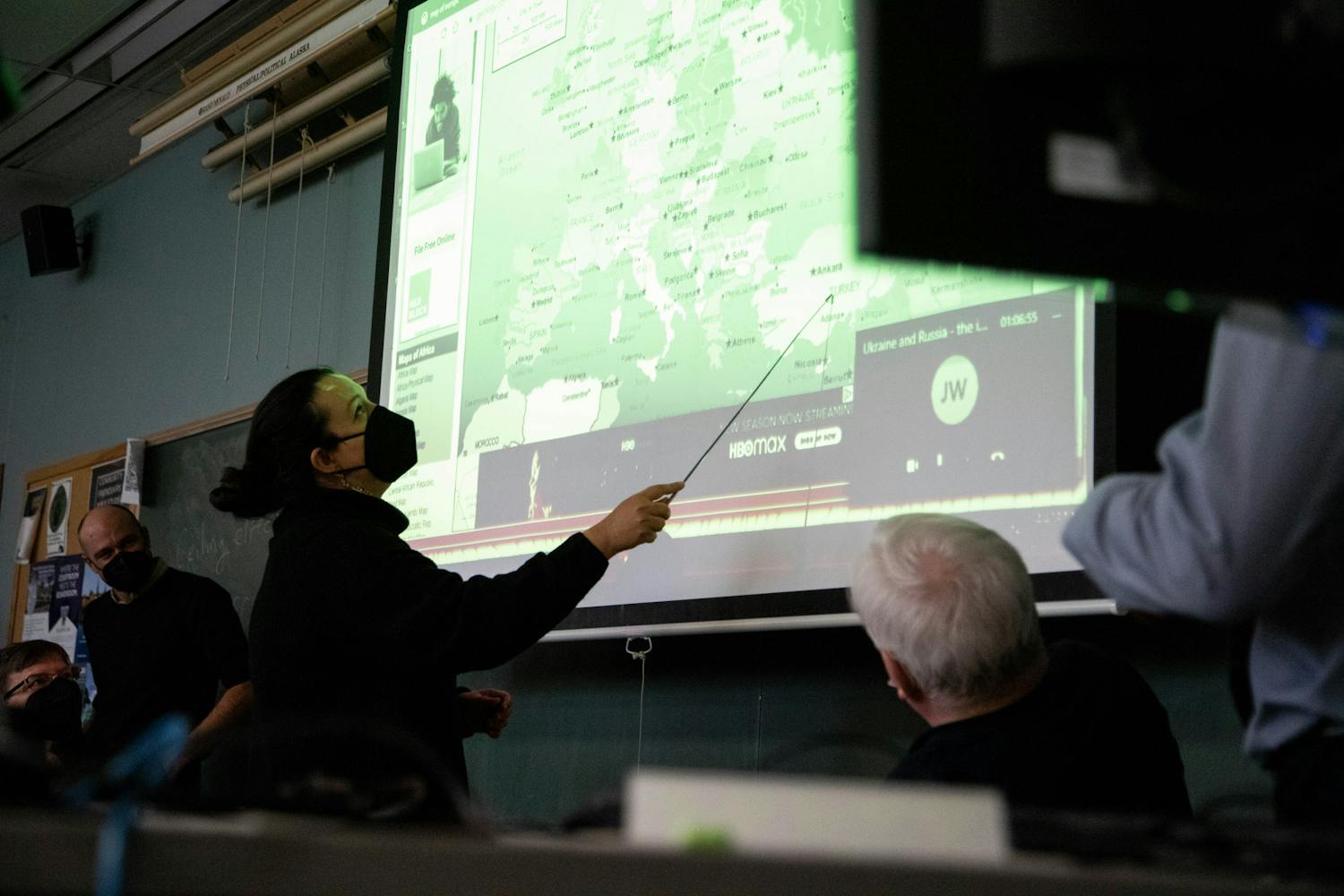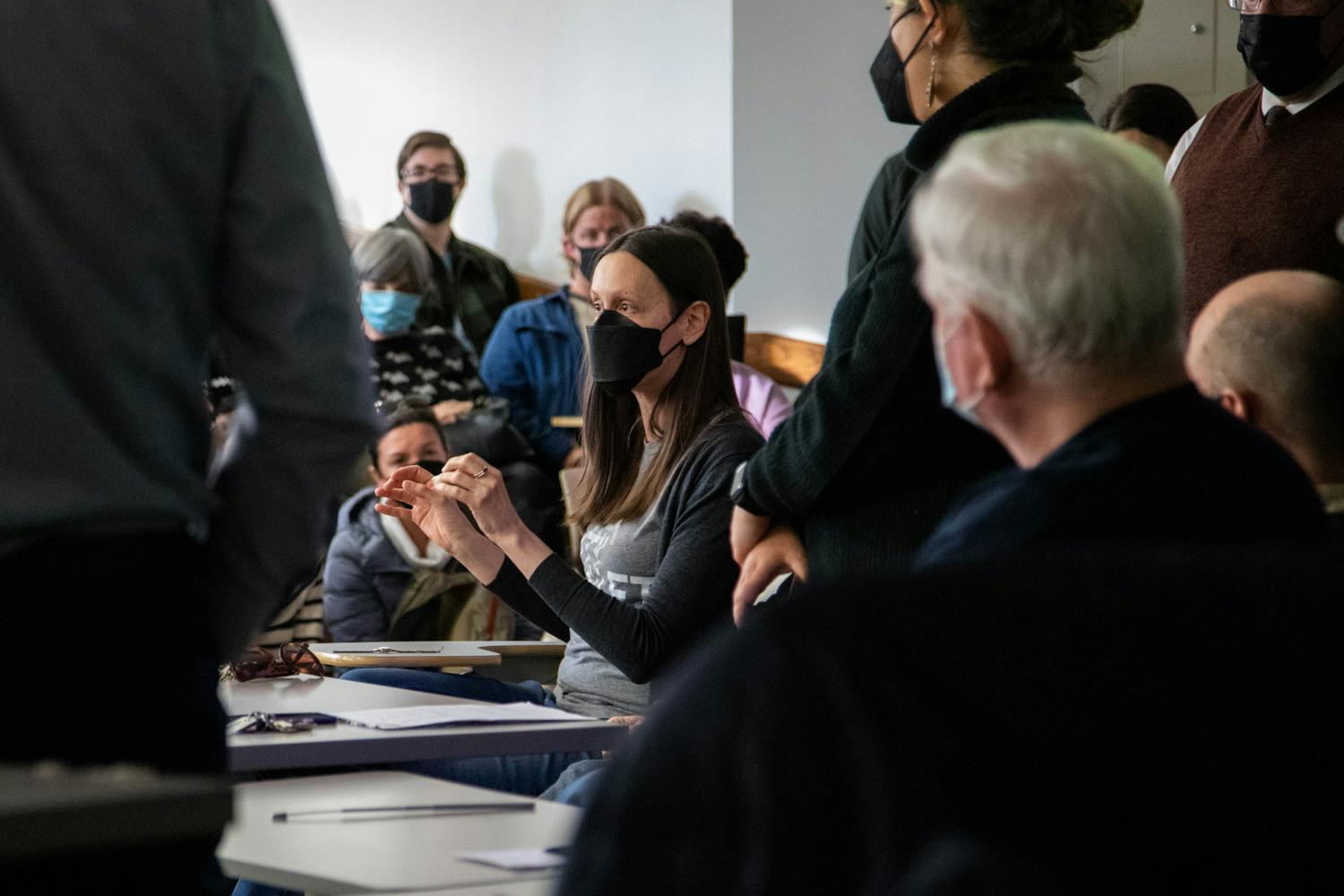Although the battle for Ukraine is unfolding roughly 5,000 miles from Athens, the conflict presents a number of concerns for the U.S. and Ohio University.
Russian forces began their invasion of Ukraine on Feb. 24, catching the attention of people across the globe, including students, faculty and staff at OU. Russian President Vladimir Putin initiated the attack under the false pretext of stopping Nazis from gaining power in Ukraine, Steven Miner, a history professor specializing in Russian studies, said.
There is no proof of Ukrainian politicians being Nazis, Miner said. Furthermore, Ukrainian President Volodymyr Zelenskyy is Jewish. Miner acknowledged the existence of nationalists in both countries but emphasized they are not in power in Ukraine.
“I would argue — and I'm not alone in this — that Putin's real concern with Ukraine is that it might become too successful in the sense that it could be economically, socially and politically oriented towards Europe and become a member of the EU and be prosperous and democratic,” Miner said.
If a Slavic country so close to Russia can become successfully democratic, Putin’s autocratic rule may be called into question, Miner said. He believes Putin is concerned he will be overthrown if a desire for a democratic government is stirred in Russian citizens.
Immediately following news of the invasion, multiple students reached out to Miner with concerns, he said. On Monday, Miner and his colleagues held a Q&A panel to help alleviate confusion about the conflict for OU students.
When it comes to impacts in the U.S., students should realize the possibility of the U.S. being pulled into the conflict, should a NATO country be invaded, and they should be especially aware of the impacts on the world economy, he said. Particularly, those effects may include price increases for things such as oil, gasoline and wheat products, Roberto Duncan, associate professor of economics, said.
Prior to the invasion of Ukraine, global supply chains were experiencing various difficulties, which may be exacerbated by the conflict, he said.
“It's hard to distinguish because of this trend which effect is due to the Russia and Ukraine war and which effect is due to (prior inflation and price increase trends),” Duncan said.
However, due to Russia’s prominence as an oil exporter and Ukraine’s prominence as a grain exporter, Duncan is expecting to continue seeing gas prices increase as well as to begin seeing price increases for certain food products. Additionally, some consideration should be given to the possible effects on inflation, he said.
Currently, there is no indication of inflation increasing due to the conflict, Duncan said. If it continues or intensifies for months or years to come, however, inflation will likely be affected negatively, he said.
Yet another aspect playing a role in the economic impacts of the conflict is sanctions placed on Russia by the U.S. and other countries, he said. One of the most impactful of the sanctions is that concerning the SWIFT banking system, Duncan said.
The SWIFT banking system is a messaging system that allows banks in different countries to communicate about transfers and payments among each other. Due to Russia’s exclusion from using SWIFT at this time, the movement of foreign currency between Russia and the U.S. has been significantly hindered. This is likely to contribute to rising prices of oil and wheat products, Duncan said.
“I don't think (sanctions) will work (to deter Russia) at all, no. I think they're quite mild in many ways,” Miner said. “They certainly will harm the fortunes of the Russian economy, but Putin, I think, had these things factored in before he launched his invasion. He knew how we would respond.”
Further, because the invasion has already begun, Miner believes there is little to be done to dissuade Russian forces. However, the sanctions still increase the cost and consequences of Putin’s actions, he said.
Economic considerations are not the only things taken into account by people at OU. The Office of Global Opportunities, or OGO, is keeping a close eye on the conflict, Kirsten Dabelko, assistant director of global security, health and safety, said.
Most study abroad programs are not situated in areas that OGO is expecting to be impacted, she said. However, she said many people did not foresee Russia’s actions and emphasized the precautions that are in place to support students studying abroad. Those precautions include paying close attention to any crises in the world and advising student travelers on the current safety of the country they plan to visit.
Although she is paying attention to the progression of the conflict when it comes to her position in OGO, Dabelko also believes the focus now should be on helping those suffering in Ukraine, she said. It is difficult to predict how the situation will evolve, but the impact on Ukrainian citizens is tragic, Dabelko said.
“There's not a quick answer to this. We can't wish it away, and despite the efforts both of Republicans and Democrats to make this into a partisan issue, it's not. It's a Russian issue,” Miner said. “And we don't control everything in the world ... nor do we have the solutions to everything.”
Payton Daugherty contributed to this report.


